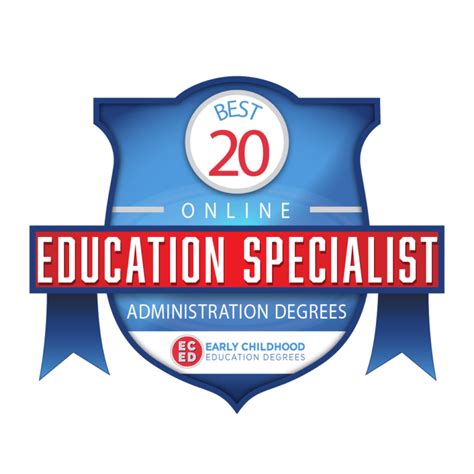Are you an aspiring educator seeking to advance your career with an online master's in education? If you're considering this path, you're not alone. With the growing demand for qualified educators and the flexibility of online learning, many are exploring this option. This comprehensive guide will delve into the types of online master's in education programs available, their benefits, and the factors to consider when selecting one. We'll also provide insights into the application process, costs, and career opportunities for graduates. Get ready to explore your journey towards becoming an effective educator in today's digital age.
## Types of Online Master's in Education Programs
The field of education is continuously evolving, and educators are increasingly seeking advanced degrees to stay abreast of the latest trends and best practices. An online Master's in Education (M.Ed.) provides working professionals the flexibility and convenience to enhance their credentials while balancing their teaching responsibilities.
There are several types of online M.Ed. programs available, each tailored to specific career goals and areas of specialization. Some common types include:
Curriculum and Instruction
This program focuses on developing expertise in instructional design, curriculum development, and assessment practices. Graduates are equipped to lead and manage instructional programs, implement innovative teaching strategies, and evaluate student learning.
Educational Leadership
This program prepares educators for administrative and leadership roles in schools and educational institutions. Graduates develop the skills needed to manage school operations, create effective educational policies, and lead teams of teachers and staff.
### Special Education
This program equips educators with the knowledge and skills to work with students with disabilities. Graduates learn about assessment, intervention, and support strategies for students with diverse learning needs.
### Early Childhood Education
This program focuses on the education of young children from birth through the primary grades. Graduates develop a deep understanding of child development, early learning principles, and best practices for supporting young learners.
## Benefits of Pursuing an Online Master's in Education
Pursuing an online M.Ed. offers several advantages for aspiring educators:

Flexibility and Convenience
Online programs allow educators to balance their studies with their teaching schedules and personal commitments. They can access course materials and complete assignments on their own time, providing maximum flexibility.
Access to Specialized Programs
Online programs often offer specialized areas of study that may not be available in traditional programs. This allows educators to tailor their education to their specific career goals and interests.
Career Advancement Opportunities
An online M.Ed. can open doors to career advancement opportunities. Graduates may qualify for leadership positions, specialized roles, and higher salaries due to their advanced credentials.
## Choosing the Right Online Master's in Education Program
Selecting the right online M.Ed. program is crucial for success. Here are some factors to consider:
Accreditation
Ensure the program is accredited by a reputable accrediting agency such as the Council for the Accreditation of Educator Preparation (CAEP).
Program Reputation
Research the reputation of the university and the quality of its education programs. Seek feedback from current or former students or consult online reviews.
### Faculty Expertise
Inquire about the faculty's qualifications and experience in the field of education. Look for programs with faculty who are actively engaged in research and have practical experience in the classroom.
## Application Process and Requirements
The application process for online M.Ed. programs typically involves the following steps:
Online Application
Submit an online application form providing information about your educational background, teaching experience, and career goals.
Transcripts
Submit official transcripts from all undergraduate and graduate institutions you have attended.
### Letters of Recommendation
Provide letters of recommendation from individuals who can attest to your teaching skills and potential for success in the program.
## Cost and Financial Aid Options
The cost of an online M.Ed. program varies depending on the university and program type. Consider the following factors:
Tuition and Fees
Inquire about tuition rates, fees, and any additional expenses associated with the program.
Financial Aid
Explore financial aid options such as scholarships, grants, and loans to help cover the cost of your education.
Return on Investment
Consider the potential return on investment by weighing the cost of the program against the potential salary increase and career advancement opportunities it may provide.
## Career Opportunities for Graduates with an Online Master's in Education
Graduates with an online M.Ed. have a wide range of career opportunities in education:
Teaching Positions
Advance to higher-level teaching positions such as lead teacher, instructional coach, or curriculum specialist.
Administrative Roles
Pursue leadership roles in schools and educational institutions as principals, assistant principals, or superintendents.
### Specialized Roles
Qualify for specialized roles in education such as special education teacher, early childhood educator, or educational consultant.
## Online Learning Platforms and Technologies
Online M.Ed. programs utilize various learning platforms and technologies to deliver course content and facilitate interaction:
Learning Management Systems (LMS)
Programs typically use an LMS such as Blackboard or Canvas to organize course materials, assignments, and discussions.
Video Conferencing Tools
Online classes and meetings are often conducted using video conferencing tools like Zoom or Google Meet, allowing for real-time interaction and collaboration.
### Virtual Classrooms
Some programs use virtual classrooms that simulate a traditional classroom environment, providing opportunities for discussions, presentations, and group projects.
## Faculty and Support Services in Online Master's in Education Programs
Online M.Ed. programs offer various support services to ensure student success:
Faculty Support
Faculty members are typically available for virtual office hours, email correspondence, and discussion forums to provide guidance and support to students.
### Technical Support
Programs provide technical support to help students navigate the learning platform and resolve any technical issues.
### Student Services
Online students have access to student services such as academic advising, tutoring, and counseling to support their academic and personal well-being.
## Challenges and Considerations for Online Master's in Education Students
Online learning poses certain challenges that students should be aware of:
Self-Discipline and Motivation
Students need to be self-disciplined and motivated to succeed in an online program, as they have more control over their schedule and learning pace.
Time Management
Effective time management is crucial in balancing academic workload with personal and professional responsibilities.
### Limited Social Interaction
Online learning may limit opportunities for face-to-face interaction with classmates and professors, which some students may find challenging.
## Tips for Success in an Online Master's in Education Program
To succeed in an online M.Ed. program, consider the following tips:
Set Realistic Goals
Establish realistic and achievable goals to avoid feeling overwhelmed and manage your time effectively.
Create a Dedicated Study Space
Designate a specific study area to minimize distractions and create a conducive learning environment.
### Stay Organized
Use calendars, to-do lists, and note-taking apps to keep track of assignments, deadlines, and course materials.
## The Future of Online Master's in Education
The future of online M.Ed. programs looks promising as they continue to evolve to meet the changing needs of educators:
Personalized Learning
Programs are integrating personalized learning technologies such as adaptive learning platforms to tailor learning experiences to individual student needs.
### Immersive Experiences
Virtual and augmented reality (VR/AR) technologies are being explored to create immersive learning experiences that enhance understanding and engagement.
### Partnerships and Collaborations
Online M.Ed. programs are forming partnerships with schools and educational organizations to provide students with hands-on learning opportunities and practical experience.
## Conclusion
An online Master's in Education is a valuable investment for aspiring educators seeking to advance their careers and make a positive impact in the lives of students. By carefully considering the information provided in this guide, educators can navigate the complexities of online learning and choose the right program that aligns with their goals and aspirations.
## Closing Word / Disclaimer
The information presented in this article is intended as a general guide, and individuals should conduct thorough research and consult with professionals in the field of education before making any decisions regarding their educational pursuits.



